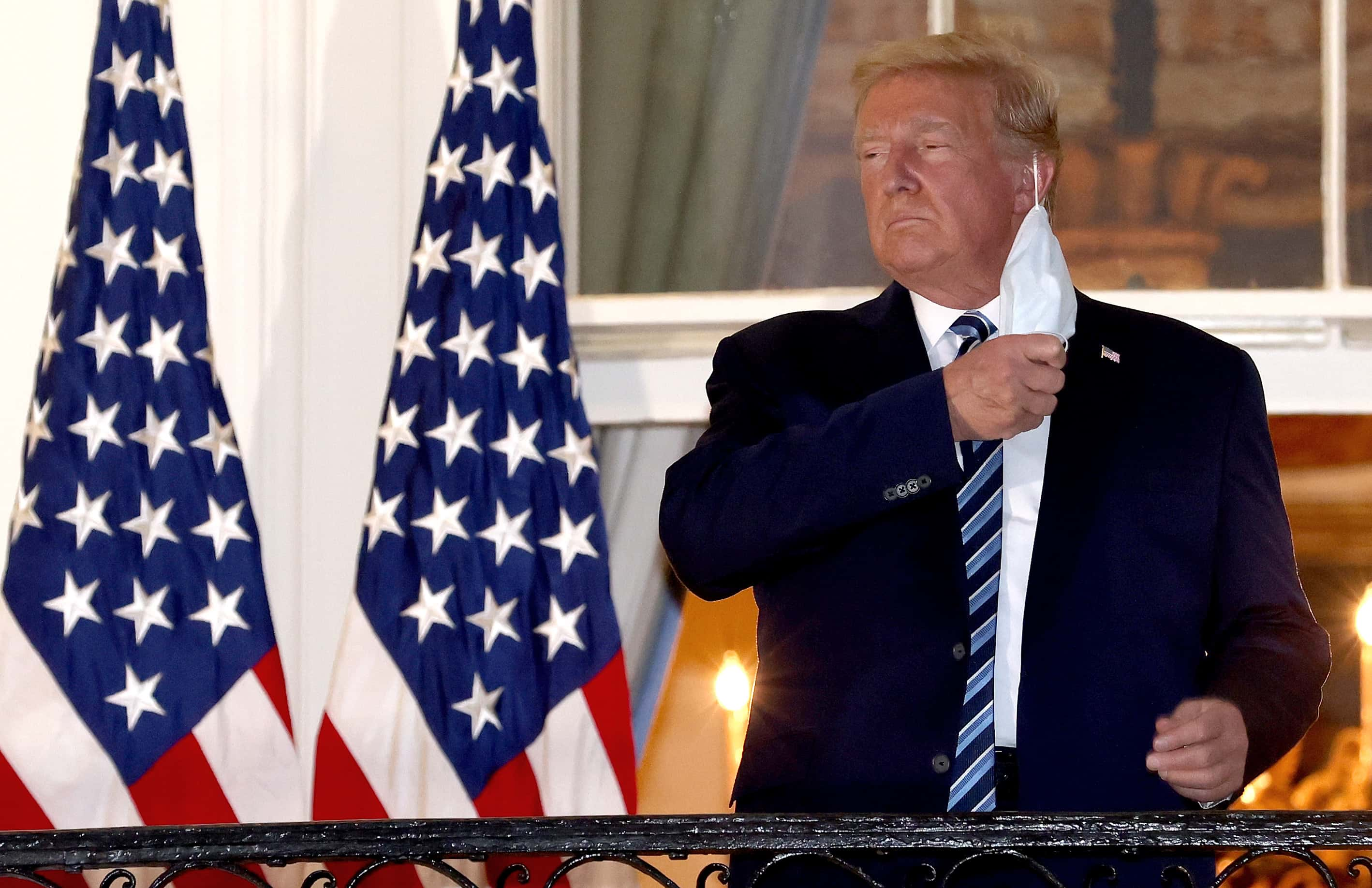Is Twitter's Trump ban working? Voter fraud misinformation dropped by 73% since suspension, says analysis

On January 8, 2021, Twitter permanently suspended President Donald Trump's social media account. Since then, a study has found that election fraud misinformation went down by a whopping 73%. According to Washington Post, this was determined by Zignal Labs, a research firm that found this out by "looking at the number of tweets discussing election fraud after Trump lost his primary means of spreading baseless theories about his defeat to Joe Biden." The once 2.5 million mentions about voter fraud went down to 688,000.

Ever since November 3, Trump baselessly claimed that the presidential elections were rigged and used his Twitter platform to amplify the message. The micro-blogging site put disclaimers on the tweets, labeling them disputed but didn't remove them or suspended Trump. However, things changed after the January 6 Capitol riots, when Twitter first asked Trump to remove three of his tweets and then de-platformed him.
His removal triggered disparate reactions, with many rejoicing but others cautioning against supressing free speech. German Chancellor Angela Merkel called it "problematic" and Mexican President Andrés Manuel López Obrador wanted to speak on social media censorship with other leaders. "Twitter permanently suspended his account TWITTER IS FINALLY TRUMP FREE," wrote one of the happier users. Another added, "Twitter finally suspended Trump's account for good. The significance for me is them (finally) saying that if you say/do shitty, dangerous things, we take your account away."
twitter permanently suspended his account TWITTER IS FINALLY TRUMP FREE
— MD WTH are we doing? (@maryderrickart) January 9, 2021
Twitter finally suspended Trump's account for good. The significance for me is them (finally) saying that if you say/do shitty, dangerous things, we take your account away.
— Tristan Risk (@littlemissrisk) January 9, 2021
Obrador, according to the New York Post, said, "I can tell you that at the first G20 meeting we have, I am going to make a proposal on this issue. Yes, social media should not be used to incite violence and all that, but this cannot be used as a pretext to suspend freedom of expression."
But it has not been a rosy path for Twitter either; on January 12, it was reported that the social media platform's shares had fallen by 7% since Trump's account was suspended.
"As some of you know, Trump's account was recently suspended by Twitter, Trump has done nothing wrong, he hadn't made anyone attack the capitol, or gave false information, he gave his opinions...," wrote one user. He added, "...and Twitter punished him for that, but Twitter hasn't done anything about the other people spreading "lies" or causing violence, they are simply singling out Trump, i don't think a life ban is appropriate in this case, if they're going to standby their actions, they should..."
this is an opinion so don't hate me, i don't want to cause any hatred for my account
— TijarOwO (@Keehasnolife) January 10, 2021
as some of you know, Trump's account was recently suspended by Twitter, Trump has done nothing wrong, he hadn't made anyone attack the capitol, or gave false information, he gave his opinions...
... and Twitter punished him for that, but Twitter hasn't done anything about the other people spreading "lies" or causing violence, they are simply singling out Trump, i don't think a life ban is appropriate in this case, if they're going to standby their actions, they should...
— TijarOwO (@Keehasnolife) January 10, 2021
What else did the research reveal?
The social media platform banned the president's account after pro-Trump supporters breached the Capitol on January 6. Twitter not just took off Trump's account but also announced that it had banned 70,000 accounts that were "linked to the QAnon conspiracy theory." According to The Hill, online misinformation was studied from January 1 to 8 and then from January 9 to January 15. Trump had been claiming that the 2020 presidential election was not only "stolen" from him but that it was also "rigged" because of "voter fraud." Apparently, hashtags that spread the election fraud news also "dropped significantly" - more specifically, the research said that #FightForTrump had dropped 99.5% and #HoldTheLine dropped 94.3%. The Hill also reported that mentions of "Qanon" and "Q" had increased by 15%, but phrases such as “We Are the New Snow” and “QanonJapanFlynn” decreased - the former by 98.6% and the latter by 95.5%.










